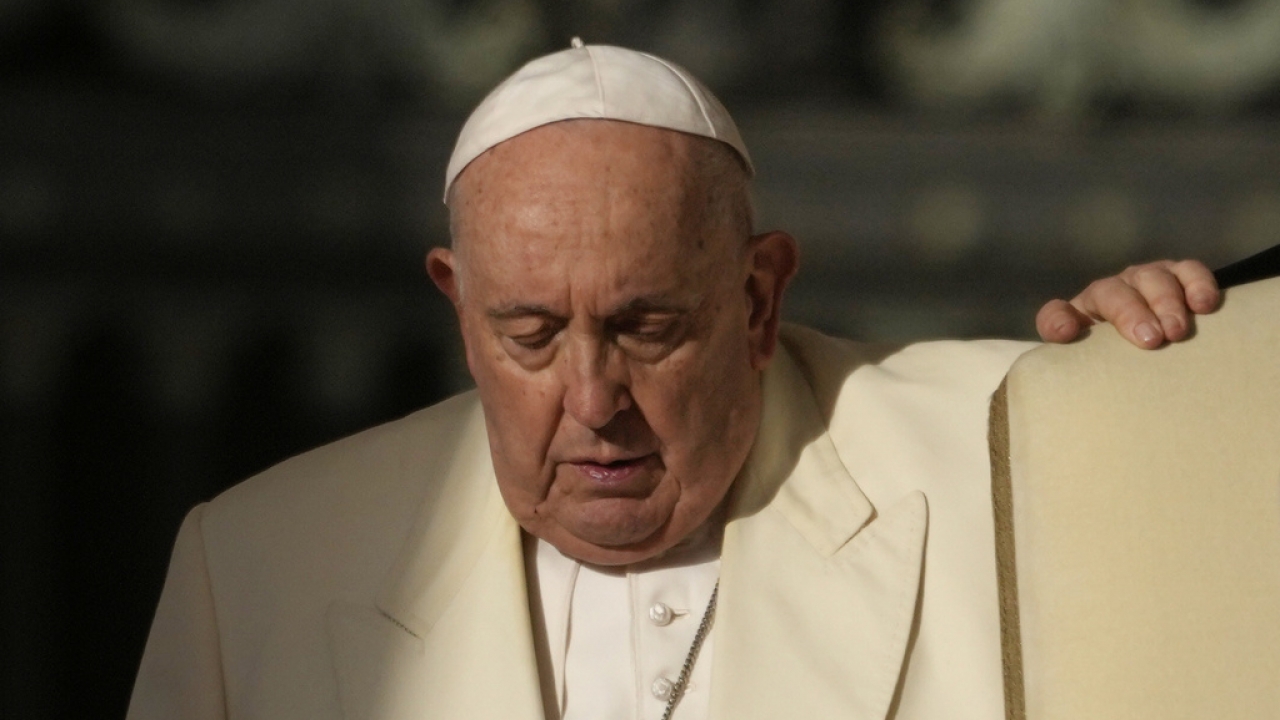Pope Francis has issued another call for peace in the Middle East after meeting with Israelis who have family members being held as hostages by Hamas.
After sitting down with those relatives and having a separate meeting with Palestinians with family members in Gaza, the pope held his weekly general audience in St. Peter's Square.
Speaking to a large crowd, he described the conflict there as "not war" but instead "terrorism."
He also said that in the two meetings, he heard about how much both groups are suffering.
The Vatican released a few details about the meetings that took place behind closed doors.
It said the Israeli delegation was made up of 12 people, while the Palestinian group was 10 people with relatives in Gaza, and that it included both Muslims and Christians.
"These two fraternal peoples have the right to live in peace,” he said. "Let us pray that the difficulties resolve themselves in dialogue and negotiation and not with a mountain of dead on each side.”
Since the start of the conflict in October, the Pope has been very outspoken, repeatedly highlighting the dire humanitarian situation in Gaza and calling for humanitarian corridors to be set up.
He has also been in contact with some of the key players in the crisis, for example, speaking to U.S. President Joe Biden on the phone last month, the White House said that the two spoke about "the need to prevent escalation in the region and to work toward a durable peace in the Middle East."
However, the Vatican has been very careful to make sure that the pontiff is not seen to be picking sides in this conflict.
We were able to see his neutral stand in his decision to meet with both an Israeli and a Palestinian delegation in Rome, so that he cannot be accused of highlighting the plight of one group over another.
The pope's spokesperson, Matteo Bruni, also said that the meetings were of an "exclusively humanitarian nature."


